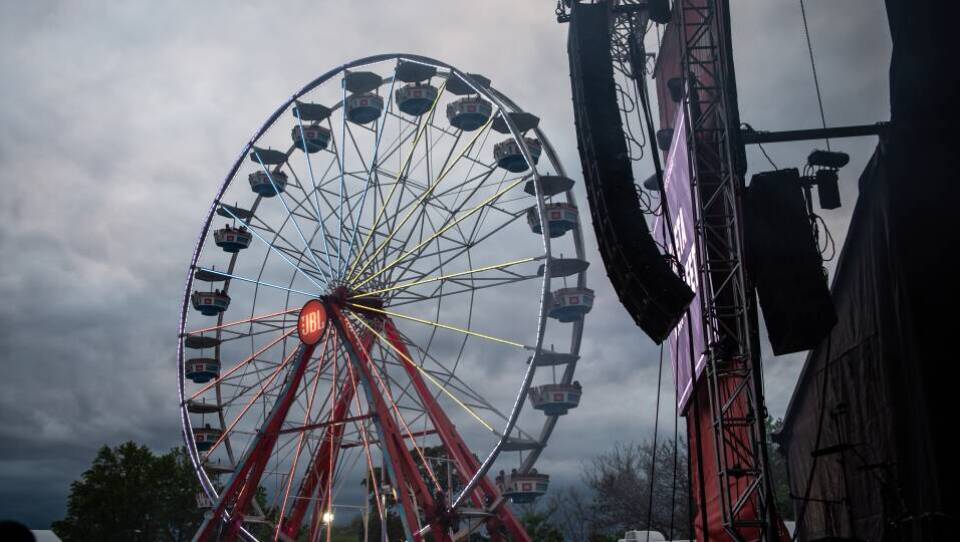This weekend,Boston Calling returns to Harvard Athletic Complex in Allston, with top acts such as Foo Fighters, The Lumineers, and Paramore headlining the festival.
Among this powerhouse of performers however, there is something noticeably lacking: diversity.
All but one of the six bands with top billing are composed entirely of white performers — Korean-American vocalist Karen O of the Yeah Yeah Yeahs is the only non-white artist to headline this year — and a majority of the bands are all men.
The lack of diversity is a stark contrast not only to other festivals headlining artists of color, such as the Governors Ball in New York City and Chicago’sLollapalooza, but to prior Boston Calling lineups. For local artists playing Boston Calling this is not lost on them; it also comes as no surprise.
Leo Son — a songwriter, guitarist and singer for local band The Q-Tip Bandits — who performs Saturday says that “it’s an incredibly important discussion to be having. [...] Boston’s kind of a white place, that’s just the truth of the matter. Boston’s kind of a segregated place.”
More Music & Culture
As an Asian American frontman in an indie rock band, Son says that he often feels like he’s “in somebody else’s arena because I don’t see people like me in the position that I am in.”
Son goes on to explain that he sees the monolithic tendencies of the Boston Calling headlining lineup as part of “‘the old guild.’ They are the 90s, the 2000s, people who were working hard and got the platform [back then] for whatever reason.”
That “old guild” is something that the The Boston Arts & Music Soul (BAMS) Festival is a departure from. It had its debut in 2018 — five years after the first Boston Calling — as a way to uplift and celebrate Black artists. This year’s BAMS Fest will take place June 23 and 24 at Franklin Park, with headliners Maimouna Youssef, Zyah Belle, Grandmaster Flash, Terri Lyne Carrington and Kevin Ross.
Paul Willis, managing director of BAMS, says that the organization is more than just a festival.
“Our work is creating space and opportunity and amplifying voices” said Willis. With programming throughout the year and collaborations with programs and spaces across the city, Willis said that “it’s not good enough for organizations to just call us to include diversity or add diversity. It’s important that that work is a collective responsibility.”

RapperBrandie Blaze, who will perform at Boston Calling on Friday, said the entire lineup shouldn’t be dismissed because of the white, rock-heavy headliners. Blaze points to the Tivoli Audio Stage, introduced last year, where “more artists of color and artists from here [in Boston] get the same opportunities as these big mainstream artists” who perform on the main stages.
”If you’re not seeing the diversity that you want on the headliners, then come to the festival anyway and come see the folks like me that are playing at two o’clock in the afternoon and buy our stuff and spread the word,” said Ronnica, a musician who sings and plays guitar for Mint Green, performing on Sunday.
If crowds are receptive to new artists, Ronnica said, “maybe next time we can just keep moving up and up on the fliers” to eventually become headliners.
Son thinks it is just a matter of time before festival headliners diversify.
“I have faith that in 10, 20, 30 years down the line, when we are ‘the old guild,’ that these headline spots will look differently.”
Son also recognizes what he can do to bring more diversity to the stage. He said that he's regularly reminded of the importance of going on tour when he speaks to Asian American fans at shows: “It has meant something to other people and that’s reason enough to keep going.”









